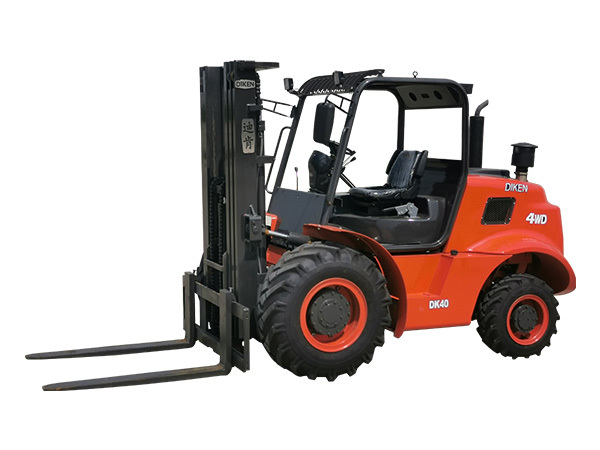Diken news
Understanding Rough Terrain Forklifts: Key Features and Benefits
Release time: 2025-07-19
Rough terrain forklifts are essential tools in various industries, particularly in construction, landscaping, and outdoor warehousing. These specialized forklifts are designed to operate efficiently on uneven surfaces, making them ideal for transporting materials across rugged terrains where standard forklifts might struggle. Here, we will delve into the key features and benefits of rough terrain forklifts, helping you understand their importance in the transportation and warehousing sector.
One of the standout features of rough terrain forklifts is their robust design. Equipped with larger, more durable tires, these forklifts provide greater traction and stability on uneven and slippery surfaces. The enhanced ground clearance also allows them to navigate obstacles like rocks, mud, and slopes without compromising safety or performance. This design enables operators to move loads in environments that would be challenging for traditional forklifts.
Additionally, rough terrain forklifts often come with advanced hydraulic systems that allow for smooth lifting and lowering of loads, even in challenging conditions. This capability is critical when handling heavy materials or when precision is needed in positioning loads. The versatility of these forklifts is further enhanced by their ability to be outfitted with various attachments, such as forks, buckets, or winches, making them adaptable for a range of applications.
Safety is a paramount concern in any operation involving heavy machinery, and rough terrain forklifts are designed with this in mind. Many models include features such as stability systems, rollover protection, and ergonomically designed operator cabins. These features not only enhance operator confidence but also reduce the risk of accidents, ensuring a safer working environment.
Moreover, the productivity benefits of using rough terrain forklifts cannot be overstated. Their ability to operate in adverse conditions means that construction and warehousing projects can continue without significant delays caused by weather or terrain issues. This reliability leads to increased efficiency, allowing businesses to meet deadlines and improve overall operational workflows.
In conclusion, rough terrain forklifts are invaluable assets in the transportation and warehousing industry. Their specialized features enable them to perform efficiently in challenging environments, offering safety and productivity advantages that standard forklifts cannot match. Understanding the capabilities and benefits of these forklifts can help businesses make informed decisions when investing in equipment for outdoor operations, ultimately enhancing their logistical effectiveness.
One of the standout features of rough terrain forklifts is their robust design. Equipped with larger, more durable tires, these forklifts provide greater traction and stability on uneven and slippery surfaces. The enhanced ground clearance also allows them to navigate obstacles like rocks, mud, and slopes without compromising safety or performance. This design enables operators to move loads in environments that would be challenging for traditional forklifts.
Additionally, rough terrain forklifts often come with advanced hydraulic systems that allow for smooth lifting and lowering of loads, even in challenging conditions. This capability is critical when handling heavy materials or when precision is needed in positioning loads. The versatility of these forklifts is further enhanced by their ability to be outfitted with various attachments, such as forks, buckets, or winches, making them adaptable for a range of applications.
Safety is a paramount concern in any operation involving heavy machinery, and rough terrain forklifts are designed with this in mind. Many models include features such as stability systems, rollover protection, and ergonomically designed operator cabins. These features not only enhance operator confidence but also reduce the risk of accidents, ensuring a safer working environment.
Moreover, the productivity benefits of using rough terrain forklifts cannot be overstated. Their ability to operate in adverse conditions means that construction and warehousing projects can continue without significant delays caused by weather or terrain issues. This reliability leads to increased efficiency, allowing businesses to meet deadlines and improve overall operational workflows.
In conclusion, rough terrain forklifts are invaluable assets in the transportation and warehousing industry. Their specialized features enable them to perform efficiently in challenging environments, offering safety and productivity advantages that standard forklifts cannot match. Understanding the capabilities and benefits of these forklifts can help businesses make informed decisions when investing in equipment for outdoor operations, ultimately enhancing their logistical effectiveness.
Keywords: rough terrain forklift










